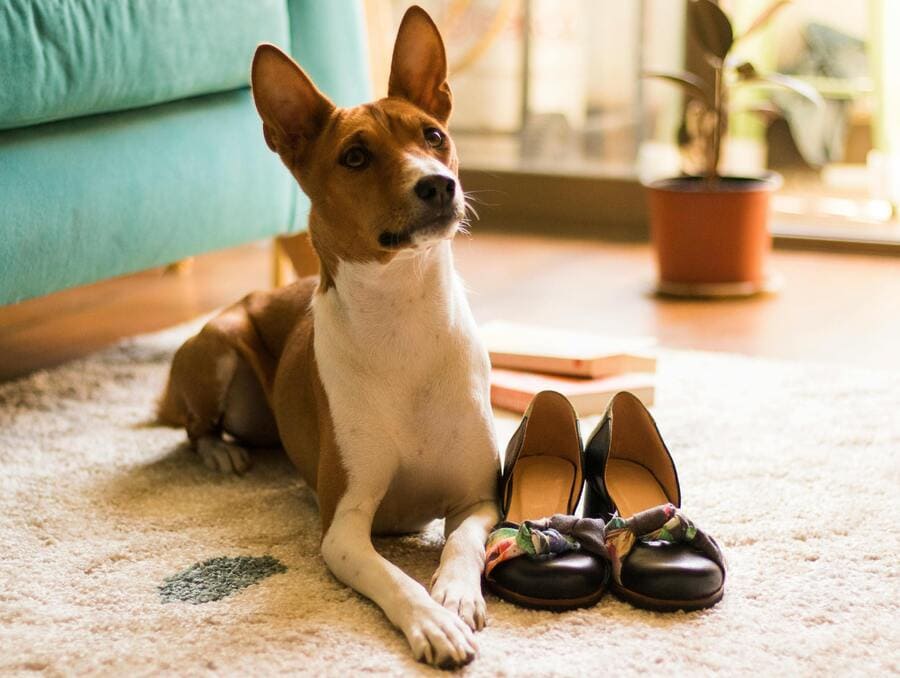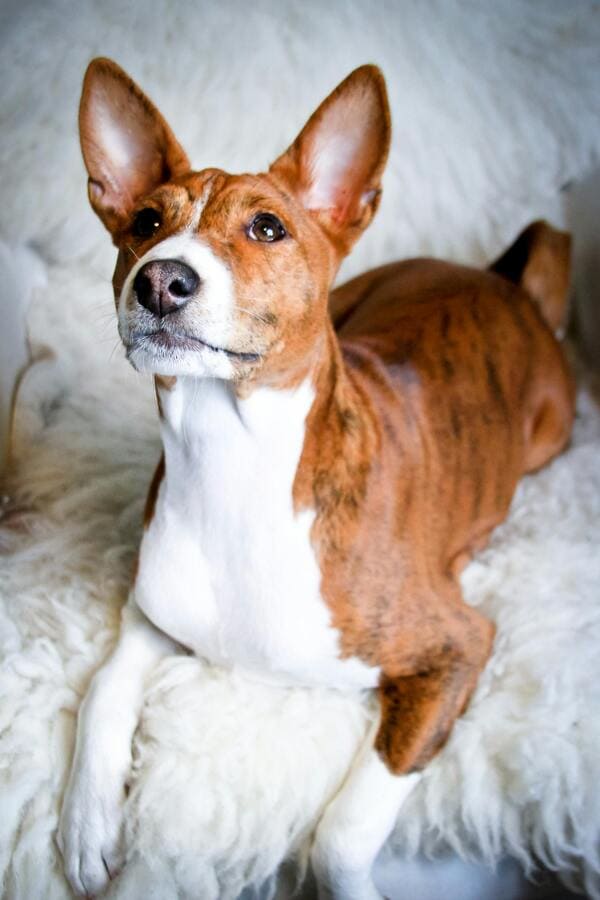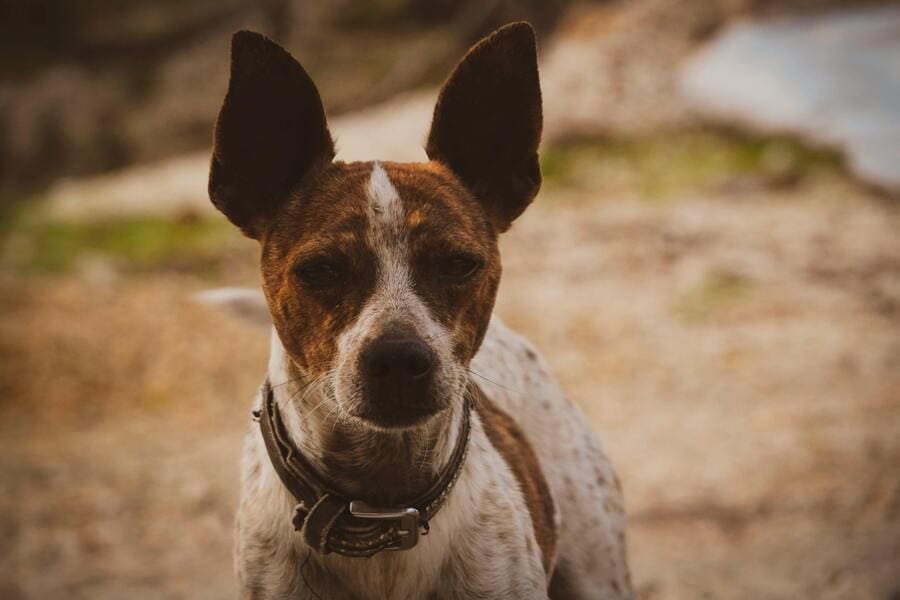Pet Insurance for your Basenji Dog
Known as Africa’s bark-less dog, the Basenji is a small hunting dog with a trademark curled tail and wrinkled forehead. Due to its rarity, this unique dog is considered a cult breed. Although a healthy breed, it’s best to consider pet insurance for your Basenji dog to help cover the costs of unexpected vet bills.
Home » Dog Insurance » Basenji Dog
Trustindex verifies that the original source of the review is Google. Absolutely incredible service to the absolute highest standard. Pay back is immediate, gap cover is accepted, and in general the nicest most caring humans. I could not support my precious dog without their support. Could not recommend highly enough.Trustindex verifies that the original source of the review is Google. My normally very healthy, happy 16th month old chihuahua suddenly became very ill and had to be rushed to the animal hospital. After lots of tests and an overnight stay plus a week of strong antibiotics, she is now back to her normal lovely self. PIA accepted all the claims and processed the payments whilst I was still at the hospital. I could not be happier with the service I received from PIA.Trustindex verifies that the original source of the review is Google. Only need to pay the gap, prompt claims and high proportion of costs covered- wouldn’t be without - so grateful for PIA for our golden retriever- wouldn’t be without - highly recommend!Trustindex verifies that the original source of the review is Google. We have been insured with Pet Insurance Australia for our dog Ella for about 4 years now. The claiming process is extremely easy online and we usually receive our rebate within a day or so. Most recently we attended Sash Veterinary Hospital and they were able to process our claim for us so we only had to pay the gap payment. I would highly recommend Pet Insurance Australia.Trustindex verifies that the original source of the review is Google. PIA have become one of the best in their field. I highly recommend them, in fact many of my friends have signed up after my recommendation.Trustindex verifies that the original source of the review is Google. Our dog has had to undergo specialist cancer treatment and ongoing follow-up care. The PIA claims process has been easy to manage and has offered peace of mind for the cost of treatmentTrustindex verifies that the original source of the review is Google. Great Experience for my Beaglier Daisy! Easy, Stressfree and the whole team is great! Highly recommendTrustindex verifies that the original source of the review is Google. Excellent. Never a problem. Claims paid promptly.Trustindex verifies that the original source of the review is Google. Very easy process to claim and fast reimbursement. It has been a massive help with helping our dog with his allergies. Very happy with them.Google rating score: 4.7 of 5, based on 471 reviewsVerified by TrustindexTrustindex verified badge is the Universal Symbol of Trust. Only the greatest companies can get the verified badge who has a review score above 4.5, based on customer reviews over the past 12 months. Read more

Basenji Dog Background
The Basenji dog breed is considered one of the oldest in existence. Pictures of similar dogs have been found in ancient Egyptian tombs and on artefacts that are thousands of years old.
The Basenji are believed to have originated in the Congo Basin in Africa. Their name means ‘village dog,’ and African tribes keep these unique dogs for their hunting skills. Due to their silent nature, the Basenji are perfect for creeping through dense forests and savannas to flush out game and drive them into their master’s traps.
Basenji’s were introduced to the Western world in the late 19th century and imported and bred in Europe and the United States in the 1930s.
The Basenji dog is still considered a rare breed and has a cult following by owners worldwide. Although they are still used as hunting dogs in Africa, they have become popular household pets due to their temperament and quietness.
Why Choose PIA for the Dog Insurance of Your Basenji Dog?
Pet Insurance Australia offers coverage for up to 80% or 90% of eligible vet bills#, a 21-day cooling-off period, friendly customer service, and two months free on any new pet insurance plan.*
*Depending on your level of cover.

Basenji Dog Characteristics
One of the most unique traits of the Basenji dog breed is their inability to bark. When they choose to make noise to greet family members or warn of danger, they make a distinctive yodelling noise, a trademark of the breed.
Basenjis are often called the most cat-like dog breed as they meticulously groom themselves. Their self-grooming habits make them clean dogs with little odour who don’t require much grooming from their owners. A weekly brush to help remove dead hair is all that is needed.
Although the Basenji is intelligent, it’s known for being independent and less eager to please than other breeds. For the best results, owners need to be patient and consistent in using positive reinforcement training.
Despite their independent nature, Basenji dogs will form strong bonds with their owners and be loyal and affectionate.
A Basenji dog is generally healthy when its high activity levels are met and your dog is fed the correct diet. However, as they are prone to some genetic conditions, having pet insurance for your Basenji dog is always the best choice to help them get the best medical care when needed.
Fast Facts
Average Height
Female: 40cm
Male: 43cm
Average Weight
Female: 10kg
Male: 11kg
Temperament
High energy levels, alert, intelligent, proud, independent, clean and loving
Lifespan
13 – 14 years
Known Genetic Issues
Hip or Elbow Dysplasia, Patella Luxation, Progressive Retinal Atrophy (PRA), Fanconi Syndrome
Country of Origin
Africa, Congo Basin
Exercise Requirements
Due to their high energy levels, at least 60-90 minutes of daily exercise is needed
Coat
A short, smooth, fine-haired coat that sheds minimally throughout the year and is often kept clean by this breed’s self-grooming nature
Coat Colours
Black, white, red or tan, brindle or tricolour
Specific Care Requirements
Basenji’s are a highly energetic and independent dog who needs a lot of daily exercise, interactive toys and training to avoid boredom and destructive behaviour.

Basenji Dog Common Health Problems
It’s extremely common for a Basenji to develop Hip or Elbow Dysplasia. These conditions occur when the joint sockets don’t form correctly and are odd sizes, leading to lameness, pain, and eventual arthritis. Your vet can prescribe pain medication or corrective surgery in some cases.
Like many small dog breeds, the Basenji is prone to Patella Luxation. This condition causes the kneecap to pop in and out of place, causing pain and discomfort. The kneecap will often pop back into place but may weaken with continual displacement. Surgery is usually recommended to correct this condition and prevent arthritis in the future.
Progressive Retinal Atrophy (PRA) is a genetically inherited condition where your Basenji’s retina (in the eye) gradually deteriorates over time. The first signs are often night blindness or your dog bumping into objects. Although PRA is not a curable condition, your dog will adapt to the loss of vision, and your vet can advise you on how to keep it happy and comfortable at home.
Fanconi Syndrome is a rare genetic condition often seen in the Basenji dog breed. It is also referred to as progressive kidney disease, in which the kidneys begin to fail. Your vet should detect it early (through routine blood tests) so they can advise on the best diet and medication to prevent eventual kidney failure.
Contact PIA for Pet Insurance for Your Basenji Dog Today
To learn more about insurance for your Basenji Dog, contact Pet Insurance Australia today. With a range of coverage options, fast online claims and excellent customer service, we’re here to help you ensure your pet enjoys a happy and healthy life with your family.
Insurance disclaimer
Pet Insurance Australia policies entered into for the first time prior to 8 May 2023 and subsequent renewals of those policies are issued by The Hollard Insurance Company Pty Ltd ABN 78 090 584 473, AFSL 241436, arranged and administered by PetSure (Australia) Pty Ltd ABN 95 075 949 923, AFSL 420183 (PetSure) and promoted, distributed and arranged by PetSure’s Authorised Representative (AR) Pet Insurance Australia Pty Ltd ABN 85 113 507 850, AR 326233 (PIA). Pet Insurance Australia policies entered into for the first time on or after 8 May 2023 and subsequent renewals of those policies are issued by PetSure and promoted, distributed and arranged by PetSure’s AR, PIA. Any advice provided is general only and does not take into account your individual objectives, financial situation or needs. Please consider the Product Disclosure Statement (PDS) to ensure this product meets your needs before purchasing, or choosing to continue with the product. PDS and Target Market Determination available at petinsuranceaustralia.com.au.
